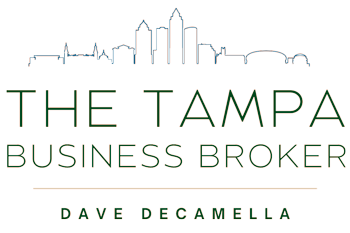
Seller financing, also known as owner financing, is a creative alternative for funding the sale of a business. In this arrangement, the seller provides the buyer with credit to purchase the business, acting as the lender rather than relying on traditional financial institutions. This setup can benefit both parties: sellers broaden their pool of potential buyers, including those who might not qualify for conventional loans, potentially resulting in a faster sale. Buyers gain negotiation flexibility and a smoother transition, as sellers often stay involved during the transition to ensure the business’s success.
However, seller financing does carry risks. Sellers must carefully evaluate the buyer’s creditworthiness and may need collateral to secure the loan. If the buyer defaults, reclaiming the business can become a complicated and expensive process. Despite these challenges, seller financing remains a popular choice due to its mutual advantages, enabling transactions that might not be feasible through traditional lending methods.
Pros of Seller Financing:
Increase Buyer Interest
Sellers can offer more flexible financing options, making business ownership more attainable for buyers. When selling your business, a swift process is often desired. Providing financing enables buyers to quickly secure funds and combine financing methods, increasing their likelihood of meeting the asking price. It also demonstrates confidence in the business’s success, as repayment can be tied to its cash flow.
Faster Closing Times
Seller financing accelerates the process by skipping lengthy bank approvals. The seller can approve the buyer quickly after reviewing their information. Traditional bank financing, on the other hand, is subject to the bank’s timeline and can take months due to extensive buyer vetting. With seller financing, deals can close in weeks. Once the seller approves and both parties agree on the contract, the transaction wraps up swiftly.
Note: Sellers should not feel pressured to rush just because they can. It’s crucial to dedicate time to carefully assess a potential buyer’s financial and professional background as a key part of choosing the best buyer. Learn more on how long it takes to sell a business.
Higher Sales Price
By managing the financing amount, you can propose a higher purchase price for your business without affecting the timeline or approval process. Moreover, sellers will gain interest on the loan amount they might otherwise forfeit.
Investment Potential
Offering financing for your business sale can yield interest income for reinvestment or personal use. This can enhance your business’s value through buyer interest payments. Seller financing rates usually range between 6 to 10 percent, potentially accumulating a significant amount over time. Work with your business broker, accountant, and attorney to set a suitable rate for a beneficial transaction.
Tax Benefits
When choosing seller financing, sellers receive monthly payments over an extended period for their business. This method provides tax benefits by spreading out income and reducing overall tax liability. However, it may not be ideal for those wanting an immediate lump sum. Buyers make installment payments, often with a down payment of 15-20 percent. This approach can be more tax-efficient, allowing sellers to keep more of their earnings from the sale.
Cons of Seller Financing:
Wider Range of Prospective Buyers
Selling a business presents a major challenge: finding the perfect buyer. Some potential buyers may not meet the criteria for financing from conventional lenders. Traditional bank financing, in particular, comes with stringent approval conditions, such as those for business loans.
Seller financing opens up opportunities for more buyers to consider purchasing the business. However, sorting through numerous potential buyers can complicate the process of identifying those most likely to repay the financing, especially if you lack experience in this type of due diligence.
Lack of Clear Owner Separation
Some entrepreneurs may aim to finalize a deal, sell their business, and move on quickly. However, seller financing complicates this, as the seller remains tied to the business’s future success to receive ongoing payments. As a result, those offering financing often find themselves still connected to the business after the transaction. Seller financing might demand additional effort from the seller.
Seller financing allows current business owners to select their own successors, but it brings additional responsibilities. Unlike traditional financing, where a bank evaluates eligibility, the owner in seller financing must assess both the financial qualifications and the managerial capabilities of the candidate. As a result, sellers often spend considerable time reviewing applications to find the perfect buyer.
Risk of Buyer Default
If the buyer doesn’t pay, you’ll need to reclaim the business and repossess the lease, which could be a hassle you’d rather avoid. In the event of a default, sellers are often responsible for legal fees to reclaim their business. They also risk losing earnings from the sale and potentially face challenges finding a new buyer.
Seller financing remains an increasingly popular option for buying or selling privately held businesses. It allows flexibility in negotiations, speeds up the process, earns interest income, and provides tax benefits. However, it’s not without its downsides; sellers must carefully evaluate potential buyers’ creditworthiness and may remain tied to the business even after the transaction is complete. Despite these risks, seller financing continues to be a viable option for both parties in many business sales transactions. By understanding its benefits and drawbacks, business owners can make an informed decision on whether seller financing is right
It’s easy to feel overwhelmed with all of the steps, negotiations, and documentation involved in the business selling process. To get the best results, it’s important to work with a business broker in the process as soon as you possibly can. The Tampa Business Broker brings years of experience in successful business sales and M&A experience. Contact Dave DeCamella for a complementary business consultation.
